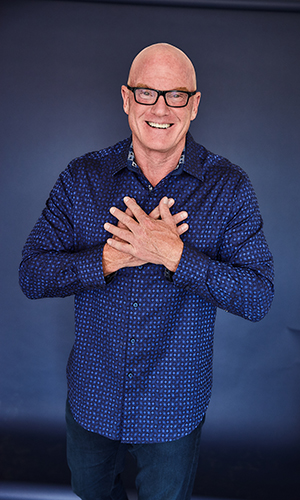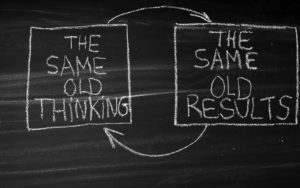Millions of people all over the globe have felt useless or are currently thinking, I’m not good at anything. It is almost impossible to imagine that a human being can fail at everything or not be good at anything at all, yet the feeling persists. Why do some of us feel this way? Why do some feel it once or twice, and others end up living their whole lives with this feeling? To understand, we need to start looking within at our origin programming.
The last time you felt I’m not good at anything could be your last. Unlearn everything that impedes your growth with my Udemy course How to Master Your Origin Challenge.
In my life, I have had to learn my lessons about overcoming my origin programming the hard way. But not everyone has to. If you are true to yourself while going through the exercises described below, you will start peeling back the layers covering up your skills and talents and find yourself on the path to truly mastering yourself. So let’s begin.
I’m Not Good at Anything: Is Your Origin Programming Making You Feel This Way?
I’m not good at anything. It’s an exaggerated idea—this sense of utter failure and disappointment in life—considering that it is impossible to be good at nothing. How do we even form such an abysmal opinion about ourselves? How does this thought, I’m not good at anything, get so ingrained in our general, day-to-day mental churnings that we feel that this is the truth? Is it simply about our own words, actions, emotions, situations, or mental health that causes us to think I’m not good at anything? Or is there more to it? The answers to all these questions lie in our human origin programming.
Your Origin Programming is Your Personality’s DNA
Begin with thinking about the DNA strands in your body. They contain your complete biological history, from ancestral genetic information to changes that occurred because of external factors. Your DNA is an imprint of your journey in human evolution. In the same way, your origin programming is the emotional, psychological, intellectual, and spiritual ‘DNA’ given to you by your parents, siblings, teachers, and coaches in the early years of your life. With some digging, this ‘DNA’ can be unraveled, studied, understood, and even altered to give you a chance to experience lasting change. But before we can do that, we need to clearly understand all the different facets involved in our origin programming. In the case of beliefs like I’m not good at anything, we need to look at some of this ‘DNA’ coding more closely to understand the possible reasons why people feel this way.
The First Seeds of I’m Not Good at Anything are Planted in Childhood
Be it your family or the world outside it, both have their own intentional or accidental ways of making you feel like I’m not good at anything. But family always comes first. Your formative years are spent entirely dependent on your parents, siblings, grandparents, other family members, or non-relatives who are in charge of your care. Every action you take, every decision or mistake you make, or lesson you learn is controlled directly or influenced by your family, mostly your parents or parental figures. It’s not until you start going to school that the rest of society comes into play to inspire emotions such as I’m not good at anything. It is your parents and family who code into you what can be considered your first layer of origin programming.
Studies suggest that positive relationships between parents and children can facilitate self-worth in later years of life and can also make way for positive mental health in the child. Lacking that also has its side effects. From personal experience, I can say that what you have learned from or has been passed down to you by your parents can impact your decisions (all kinds of them) and can lead to personal failures (or successes) throughout your entire life. In my book, Mastering You From the Inside Out: Survive and Thrive, Personally and Professionally, I share the painful truth of how my origin programming shaped my life. The often aggressive way I approached situations. The needless mistakes I made. The losses I faced. They all boiled down to my failure to overcome my Origin Challenge by revising my origin programming as an adult.
Nature Versus Nurture in Your Origin Programming

In the early years of life, it is primarily your parents, siblings, and other close family members and friends that program your personality. If you’re lucky, that part of your life can be very nurturing and strengthening. But once you start interacting in other social settings, it can be anyone you come into contact with who can influence your programming. For most of us, this social origin programming begins at school with friends and teachers.
When you are trying to decode your origin programming, you need to explore which aspects of your personality have been influenced by your teachers, coaches, friends, classmates, neighbors, seniors, teammates, and anyone you had a relationship with while growing up. It could even be your boss at a part-time job or leader in a club like 4H or Boy Scouts. Your origin programming will have both positive and negative aspects. In the negative ones, you will find patterns of behavior development that lead you to believe I’m not good at anything. You need to ask yourself some tough questions about what person or incident first caused you to think that thought.
Treadmill Style Work-Life Failing to Recognize Unique Abilities
Whatever your personality or merits, this world is not a forgiving place for most. Throughout history, systems have emerged that are designed in such a manner that they reject uniqueness, punish it and invite nothing but the I’m not good at anything demon in your life. Be it education or profession, people who are part of these systems tend to celebrate mediocrity and homogeneity and reject everything that doesn’t fit the typical mold.
Finding the magnificent in the mundane is a tricky task in day-to-day modern life. Most people employed in this world’s generic jobs are hardly making ends meet, living a life where creativity or different ways of thinking are a liability. Everyone’s origin programming works in their favor or against them. But a very heightened sense of alienation can arise out of economic disparities, unfulfilled ambitions, and creative frustration. Out of this murky concoction of all things negative comes walking in your life the I’m not good at anything demon, eating away at your self-esteem bit by bit.
Classic examples of situations that can cause a person to think I’m not good at anything in professional life are bad grades in academics, lack of athletic skills, bullying or mistreatment in the workplace, a treadmill-like nature of their work, and more. Apart from being at home, we spend the majority of our time in the workplace. That is why being made to feel like I’m not good at anything in a place where we spend so many hours over a long period can also give more weight to that negative feeling.
If Nobody is Born Without Talent, Then What Keeps You from Finding Yours? Maybe Your Origin Programming Needs Some Fresh Coding.
The Family Factor: The Apple Doesn’t Fall Far From the Tree
When you are a child, an absentee or an overbearing parent can both lead to situations where you are left feeling insignificant, unimportant, uncared for, and finally, disappointing. This baggage from your past can impact your everyday life, making you question your worth in life and experience thoughts like I’m not good at anything.
A classic example would be a child raised by a parent with alcohol addiction. Approximately 28 million children live with an alcoholic parent. Even until very late in life, humans look up to their parents as the source of all safety, validation, and love. To be trapped with an alcohol-abusing parent can leave them with lasting scars. Children of alcoholics run a high risk of developing severe anxiety, depression, and self-esteem issues. If not handled well early on, this can manifest into extreme negative feelings toward one’s self, including thoughts like I’m not good at anything.
Children who have competitive or combative parents often internalize the stress of their rough marriage or the pressure of impressing their parents. Failing to impress them can result in a negative belief like I’m not good at anything. Over the years, this repeated response to daily emotional setbacks can solidify into a belief that you do not have any talent at all. The tiny voice inside your head that keeps mumbling all day that I’m not good at anything is really the voice of your disapproving parental figures or society telling you what it wants you to believe.The truth of the matter is that if you fail to recode your origin programming, it will play out in your parenting skills as well, creating a toxic generational chain of unrecognized personal power.
The Social-Professional Factor: A Square Peg Among Round Holes
Internalizing the feeling I’m not good at anything is directly born out of childhood trauma. Any act of cruelty towards a child can cause them to create a vacuum of self-worth or a warped sense of self-esteem. Trauma can come in many forms, including mental, physical, or sexual abuse. Online bullying or bullying at schools. Extremely competitive or combative parents. The pressure of academics or the pressure of popularity. Romantic rejections, not fitting in, or feeling aesthetically unappreciated for who you are. Turmoil in social or romantic relationships, cheating, etc. These are all just a few examples of social rejections that directly contribute to the rise of self-deprecating thought processes involving toxic ideas like I’m not good at anything.
Consistent negative feedback in academic, personal, or professional life can create a defense mechanism in which people become hurdles to their own success. A person who was bullied heavily in school might never fully grasp their own leadership qualities and hence never reap the full benefits of their personality at work. Your origin programming is so fundamental that until you understand it in-depth, you can never see the subtle ways in which it subconsciously controls your behavior. Your lack of faith in your abilities, fear of experimentation, inhibition towards building relationships, and social-professional awkwardness can keep you from experiencing the magnificent power of your personality and bury you under a wall of emotions like I’m not good at anything.
The Mental Health Factor: Do You Need Help from a Professional?
Anxiety and depression are among the most common mental health issues in the United States, with 18.1% of the population suffering from them. That translates into 40 million adults living with these disorders. And among their most common symptoms is the consistent and powerful feeling of I’m not good at anything. These disorders develop from a complex set of risk factors, including genetics, brain chemistry, personality, and life events, and can manifest simultaneously in a person. A loss of a loved one, a severe and prolonged physical ailment, social ostracization, emotional, mental, and sexual abuse, and major failures in life can all lead to feeling an acute lack of self-belief. In severe cases, they can lead to debilitating anxiety and depression.
Both anxiety and depression can warp your sense of your own value. These disorders impact every facet of your personality and even have physical symptoms. In extreme cases, anxiety and depression can turn even geniuses into a pale shadow of themselves, leading them to believe I’m not good at anything, even when that couldn’t be further from the truth. For my mother, her treatment-resistant depression took her to a place so dark that she eventually took her own life.
If you suffer from anxiety and depression, getting professional help may be the right course of action. But that being said, your treatment can receive some real backup with the above-discussed tried and tested methods of your decoding origin planning. Psychological therapies are built around similar formats of digging deeper and deeper into the patient’s psyche to unearth old traumas and find their resolutions in order to master one’s personality issues. This is not very different from mastering your origin programming and genuinely discovering from whence you came. With a trustworthy doctor in your life helping you manage your anxiety and depression and mastering your origin challenge, you can fight the battle against your anxiety, depression, and anything that ever made you feel I’m not good at anything.
Decoding Yourself Through the Origin Challenge: Deconstruct the Feeling of I’m Not Good at Anything
The Origin Challenge is a way of understanding your origin programming—your non-physical behavior pattern developed because of your overall upbringing before you turned 18. It includes your emotional, psychological, intellectual, and spiritual personality aspects. Mastering your origin challenge helps you learn who and what you really are. Most importantly, it tells you why you are the way you are by understanding from whence you came. This understanding gives you clues that you can work with to decode your established origin programming and reshuffle or recode it all together to experience, earn, and enjoy the most out of your life.
To understand this better, let’s look at trauma. A trauma that occurred during childhood can cause people to develop significantly low self-esteem that can, later on, manifest itself into a dominating emotion like I’m not good at anything. That trauma can be from many different sources, from a sharp word to a blow. When it happens in the earliest, most vulnerable, and highly impressionable years of your life, it can influence your actions far into the future. This is because unresolved childhood trauma and everything associated with it inserts itself directly into your origin programming.
Discovering and understanding your origin programming can help you learn how it is helping or hurting you personally and professionally. Suppose you are able to identify which of your traits and relationship characteristics come from your origin programming. In that case, you can then determine the places where changes are required and revisions need to be made to your programming to eliminate negative traits.
Mastering Your Origin Challenge: Decoding, Analyzing and Recoding Your Origin Programming
Failure to master my origin programming cost me my reputation, career, some $50 million of my net worth, and my marriage. But once I understood my origin programming and how it came to be, I discovered what programs needed to be recoded. Due to one addicted parent and one emotionally unavailable parent with three divorces to and from each other, I grew into a classic codependent. I lived for acceptance and validation, both in my personal and professional life, a trait that led me to commit devastating mistakes. It took a long, challenging journey to discard my earlier programming, recode myself, and finally get on the path to my full potential.
To master your origin planning, you will have to do a thorough analysis of your personality based on questions like the following: In what ways are you similar and dissimilar to your parents and others who participated in your origin programming? In what ways are your relationships similar and dissimilar to your parents’ relationships? What has your reliance on your origin programming as an adult cost you personally and professionally?
In my book, Mastering You From the Inside Out- Survive and Thrive, Personally and Professionally, you will find a more elaborate set of questions that will help you understand, calibrate, and work on removing your negative origin planning and replacing it with a healthier one. You can also supplement your study with my “How To Master Your Origin Challenge” course on Udemy. Once you understand from whence you came and take ownership of your origin programming, you can then decide what revisions you want to make to that programming. These changes can then be reflected in every decision you make and thoughts you think to nurture your personal and professional potential.
Create and Maintain Healthy Boundaries: The Power of No
Integrity comes from the Latin “integer,” meaning whole. A person with integrity is one who is whole and complete and one who applies their integrity to every life situation. Remember the old adage, “integrity is doing the right thing when no one is watching?” At the core of this sentence is the sentiment that a person’s integrity is the set of values and virtues that makes up their fundamental personality. They always act upon these principles, even when there are no witnesses. In a sense, it is the sturdy foundation of your personality around which more dynamic traits are held. Imagine your integrity principle as the deep and strong roots that allow the branches of your complete existence to sway freely in safety.
Once you have a better idea of what your integrity principle is, your job is to ensure that your integrity is an asset and not a liability in your life goals. You have calculated, compared, and consolidated your principles around it, having decoded your origin programming. Your integrity principle is your moral compass, and for it to face north, you might require some firm boundaries.
Boundaries are limits. They are the extent to which one can exercise a particular right concerning any other person. How do you execute this sense of integrity in your daily life? What do you do when the world throws situations at you that challenge your definition of integrity? Do you keep changing your integrity principle to suit your situation?
Countries have international boundaries that cannot be crossed without permission and keep both sides in check. Organizations have boundaries that help the workforce function safely at optimum productivity. Society has boundaries, said and unsaid, that influence our behaviors. Boundaries are of many kinds, but their job is always the same: segregating the acceptable from the unacceptable.
Installing personal boundaries, including intellectual, emotional, spiritual, physical, and sexual, is imperative to having an intact integrity principle. These boundaries not only decide who you are but also enable you to execute your integrity principle without any compromise and help you fight the I’m not good at anything demon in your life. There may be unhealthy relationships causing you to think that way that need boundaries.
Creating, communicating, maintaining, enforcing, and living healthy personal boundaries is vital as they enable you to share the abundant beauty of your personality with the world. They help create mutually beneficial relationships of all kinds while honoring, nurturing, respecting, and loving yourself. Boundaries tell the world that you are entirely comfortable with who and what you are. When you’re living true to your integrity, it’s much harder to accept negative thoughts like I’m not good at anything.
As outlined in Chapter 6, “Boundaries Set You Free” in my book, it took me 15 years to figure out how to create and navigate boundaries that would have saved my career and personal life from a lot of ruin. Fortunately, you can benefit by learning from my challenges. To understand if you have healthy boundaries, a more self-interrogative approach is useful. Are you more susceptible to putting your needs aside for others? Do you value or get influenced by your own feelings, thoughts, opinions, and views? Do you allow others to infringe upon your personal space without consent? Do you often find yourself afraid to say no? Do you have different kinds of boundaries for different types of relationships? Do you communicate it to others when your boundaries are crossed? Do you respect other people’s boundaries?
Once you have all your healthy boundaries in place, it is time to track your progress. With time, patience, and hard work, installing these boundaries will help you find your freedom away from mental regurgitations of the thought I’m not good at anything.
Plan Your Life and Live Your Plan

The final stage after your origin programming analysis is done is creating and executing a plan to revise your origin programming to achieve your full potential. Think about the way a company or an organization has plans. Revenue, expense, capital expenditure and income plans. Marketing plans. Product development plans. Personnel plans.
In the same way, your life needs planning, too. And what your life needs is not all that different from the plans that companies have. If you have a clear trajectory of your life’s components such as income, spending, savings/investment, capital expenditures, and personal plans for your relationship with your significant other, kids’ education, etc., having a reliable plan and holding yourself accountable to follow it is very important. So is regularly measuring, reporting, and appropriately rewarding yourself. Failure to have and follow your life’s plan can lead to squandering opportunities that might never come again.
To ensure that your planning is efficient and effective, you need to once again delve deep into your heart and ask yourself some really critical questions. What are your professional goals, and how do you plan to achieve them? Do you have a personal financial plan for yourself and your family? What are your relationship/family goals, and how do you plan to achieve them? What are your most significant fears?
A good plan doesn’t only get you professional success. It also protects your integrity. It helps you keep your boundaries marked and provides you strength. But more than that, a plan with boundaries in place ensures that you do not make the kind of blunders that I did. They work together in keeping you focused on your trajectory of success and keeping the I’m not good at anything demon at bay.
Once you are ready with the answers to these questions, you will find more clarity and certainty. It is important to remember that planning and following a plan is gradual, a patient process that has to be managed over a long period of time, even a whole lifetime. Accountability toward the plan and a system of rewards can be miraculous in maintaining a forward direction in life. But most importantly, a good life plan works like an efficient tool in battle. The better your plan is and the more you work it, the greater your confidence will be. As time passes, you will feel more secure in your abilities, more confident in your personality, and more faithful to your purpose. All in all, a good plan is your weapon against the persistent influence of the I’m not good at anything demon.
Your origin programming has rigged your world to make you think and feel like I’m not good at anything. Find the clues to break free through my book, Mastering You From the Inside Out: Survive and Thrive, Personally and Professionally.
Mastering You: Ridding Yourself of the I’m Not Good at Anything Demon
To know how far you can get, you need to know where you are coming from. And once your partner, family, and friends are on board this journey with you, the dynamics (and stakes) change dramatically. It is essential, therefore, to be able to decode the origin programming that has led you to believe things like I’m not good at anything. During my experience of studying and teaching tantra, an ancient form of Tao and Hindu meditation, yoga, breathing, and sounding techniques, and massage, I understood the scope and depth of our origin programming from our childhoods. We carry that baggage through most of our lives, suffering under its weight and living half a life.
Following the White Flag Victory Rule
The law of diminishing returns describes the point at which the profits gained out of an enterprise are lower than the original investment. When combined with the old saying “when the going gets tough, the tough get going,” the law gives you a mantra that you can use. The White Flag Victory Rule states that once you have reached the point of diminishing returns or negative returns, you should stop, drop, and wave the white flag of victory. The rule might sound a lot like quitting, but it is actually the opposite. While quitting essentially means that you won’t not be making any renewed efforts at the task. The White Flag Victory Rule is about not punching beyond the negative returns, holding onto the resources. Instead, with passion and commitment, investing them all over again in a different way.
The White Flag Victory Rule applies to almost most things in life. Relationships. Arguments. Debates. Jobs. Careers. Houses. Cars. Your lifestyle. Investments. Projects. Plans. Baggage from your past. When you reach the point of diminishing or negative returns and there is nothing you can do to make your returns positive, then it’s time to hoist the white flag, declare victory and move on. Two of the most common examples of life situations where you might want to use this rule are disagreements with your partner and job or career change. These are two life events that, when they go awry, can topple you down a rabbit hole of I’m not good at anything like emotions.
Becoming Scalable Professionally and Personally
Scalability refers to the capacity to be changed in scale and size while improving efficiency and profitability. Businesses do that all the time. They are born and they scale. All systems, companies, and organizations take full advantage of opportunities for growth by changing in size, scale, and/or scope while simultaneously ramping up their efficiency and profitability. People are also able to scale on a personal level. Like a business, the more scalable a person you are, the more room you have to grow and share.
Scalability is of many kinds. Personal. Professional. Emotional. Intellectual. Spiritual. Physical. Financial. And more. To be scalable, you should have a clear understanding of your goals, your strengths and weaknesses, and the people and resources that you will need to scale. For you, being scalable means being able to marry or cohabitate, have kids, handle a promotion, change careers, or take on a new project.
To break out of your origin programming, overcome feelings like I’m not good at anything, your scalability has to be calibrated. For that, you need to answer questions like: Do you have plans for personal or professional growth over the next year or more? Have you assessed your strengths, weaknesses, and resources, including scalability in terms of your plans? Do you know what additional resources you need to implement your growth plan? Is your management style one of delegating responsibility and authority or only partial delegation? How frequently do you ask for feedback from important people at work and outside of work? Are you a procrastinator who always seems to be overloaded and behind? Do you spend a lot of time talking about how busy you are?
The answers to these questions will tell you everything that you need to know to make the changes that can guarantee an increase in your scalability, both personally and professionally. Think carefully when you answer these questions, and do it truthfully. To enhance your understanding, you have to painstakingly note your responses to the self-interrogative questions and then study them. The conclusions that you draw will be for your benefit and that of your loved ones.
From I’m Not Good at Anything to Mastering You in Personal and Professional Settings
If you’re feeling like I’m not good at anything, it’s time to dig deep and discover from whence you came by mastering your origin challenge. By examining your early relationships and discovering where these feelings come from, becoming secure in your integrity, making your life plan, remembering the White Flag Victory Rule, and keeping yourself scalable, you can crush the I’m not good at anything demon in your life. It’s time to stop letting others be in control and start mastering yourself. Get started on your journey today by doing an origin deep dive with my book Mastering You From the Inside Out: Survive and Thrive Personally and Professionally and my Udemy course, Mastering Your Origin Challenge.

Skip has lived a life full of opportunities of a lifetime at full throttle, following his maybe wrong but never in doubt philosophy. A life full of extraordinary successes and accomplishments, devastating tragedies, and spectacular mistakes and failures. All of which he owns, has embraced, is grateful for and from which he has learned many valuable lessons. Skip hopes to use his experiential knowledge to help you Master You, personally and professionally.





